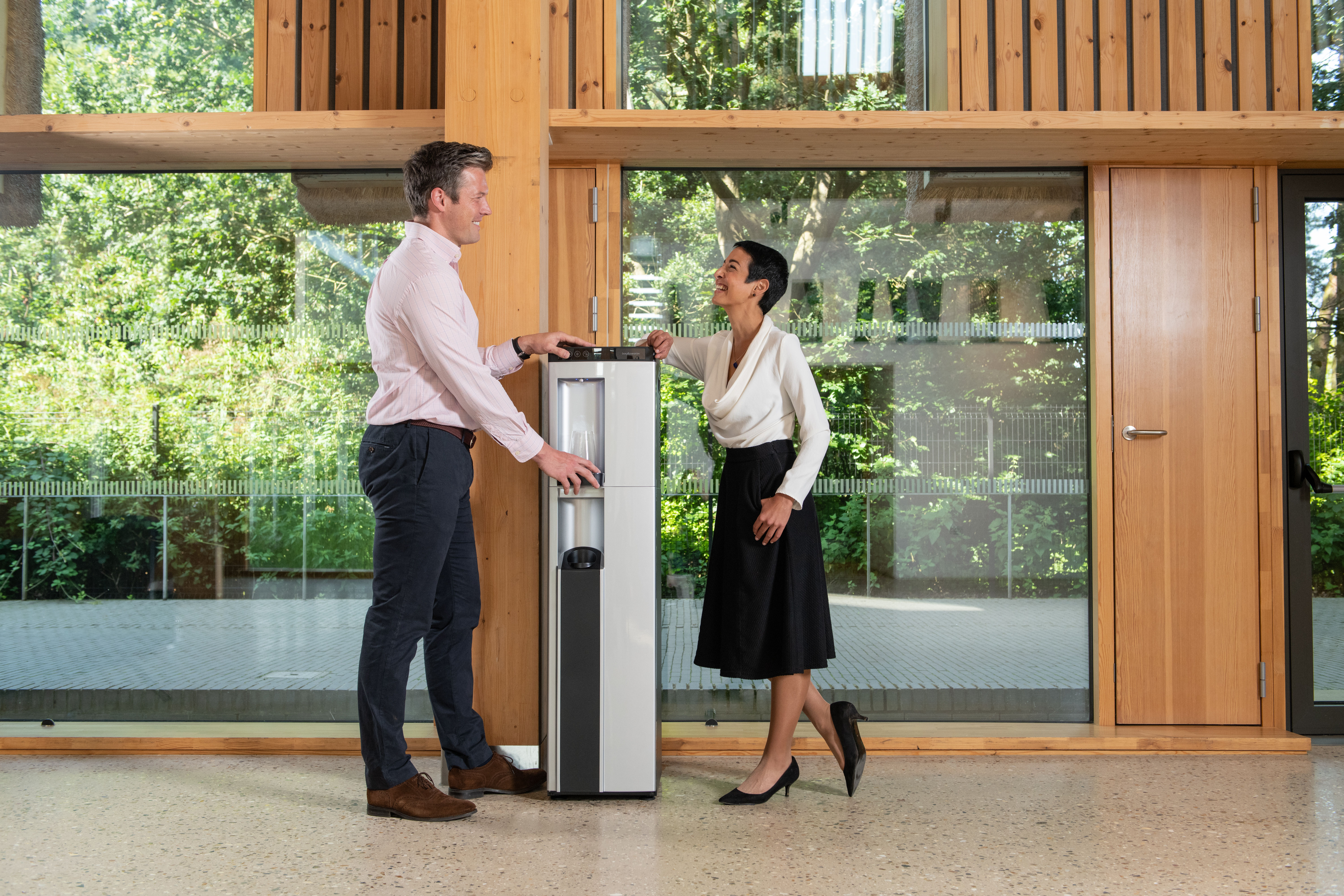Is the watercooler moment still relevant in 2022?

The 2022 workplace has changed, but does it still need watercoolers?
The rise of hybrid and remote working has been the central story in the recent evolution of the workplace. We’re still very much feeling the pandemic’s shockwaves, and will for years to come. Many old features and customs are in doubt, but what of the famed “watercooler moment?”
As a facilities manager, you may wonder if a water dispenser is still an essential purchase in a changed working landscape. This is understandable; when it comes to the state of the workplace, nothing is for sure, and few predictions can be set in stone.
If you run an office, your business still needs a source of refreshment, but who wants to spend the money on a premium product?
Borg & Overström have over two decades of experience helping provide workplaces with refreshment solutions, including Our close relationships and constant ongoing dialogue with partners in the water industry have allowed us to end-users in navigating the pandemic-induced changes of recent times.
Rest assured, we understand why you’d be hesitant over making such a purchase. Hopefully, this article will help clarify .
Asking the experts – what about hybrid and remote work?
According to Jonathan Olds, Borg & Overström’s Head of Global Sales, internal data gathered has revealed something of a productivity slump.
Industry experts – those who provide water coolers and water solutions to offices – have noticed a downturn in productivity as a result of working from home on a permanent basis, but also even on a hybrid model. This goes for distributors and facilities managers alike, with a disconnect in team morale, team spirit, and teamwork playing out.
But the most noticeable and alarming development has been the state of information transfer.
“Historical evidence has seen 80% of business information transferred at the ‘break area’ namely the coffee or water point within the business. It’s a critical space within the office.”
Business information in this context covers anything to do with organisational performance, business performance, leads, departmental objectives, task assignments, and ownership of responsibilities, and any other general information that may not be critical or warrant a meeting, but keeps people informed in a cross-departmental sense.
This means that most of what goes into “running the ship smoothly,” so to speak – is determined outside of the conference room. This talking space is where managers and heads can improvise in the face of the inevitable setbacks and rearrangements that are part of office life.
The loss of regular refreshment at work could see a downturn in individual and team focus; its importance for cognitive function is well-documented after all.
So far, the consensus appears to point to businesses that have returned to the office on a full-time basis outperforming hybrid or remote competitors. However, it’s worth noting that this remains somewhat disputed considering the massively diverse range of businesses that use some form of office facilities in the first place.
“There’s a second phase to this that sometimes goes unexplored in the conversation: one of the expectations of the workforce within the physical office environment is in how it raises the bar. This is an important part of workplace recruitment; an area business must master to stay relevant in this changed playing field.”
How does this play out? People seeking new jobs proactively investigate what their work environment is going to be like. Tea, coffee, food and water facilities are a major influencing factor over both a worker’s willingness to remain in a role or a jobseeker’s will to accept one.
Jonathan also noted that successful companies that are weathering recent storms are doing so by improving their current spaces and valuing refreshment as a staple, not an afterthought.
“What we’ve found is that even where a company will offer a remote or hybrid option, the best ones create a workspace that makes people want to go to the office regularly. This kind of worker will realise that, instead of working in their kitchen surrounded by distractions, they can get a cup of coffee or glass of cold sparkling water at no cost. They may only have proper IT support in person, a proper meeting space, colleagues to dynamically bounce ideas off, et cetera. And water plays an important role in bringing all that together.”
Ready to learn more? We’ve got you covered
So to summarise: we have a new landscape where the office is far from dead but permanently changed. Every business that wants to stay afloat, even in still and untroubled times, struggles to keep its workers away from competitors.
Now, that competitive field has widened to include the home itself. One way to win is to improve the office ambience, keep workers healthy and functioning well, and remind them of the necessity of camaraderie and the personal touch of business.
These are volatile times, but proclamations heralding the death of the office look premature. Not only that, but hybrid and remote may not be as permanent as first thought. To learn more about the relevancy of the watercooler moment, particularly for your workers, be sure to see our Learning Centre piece on its role in productivity.
